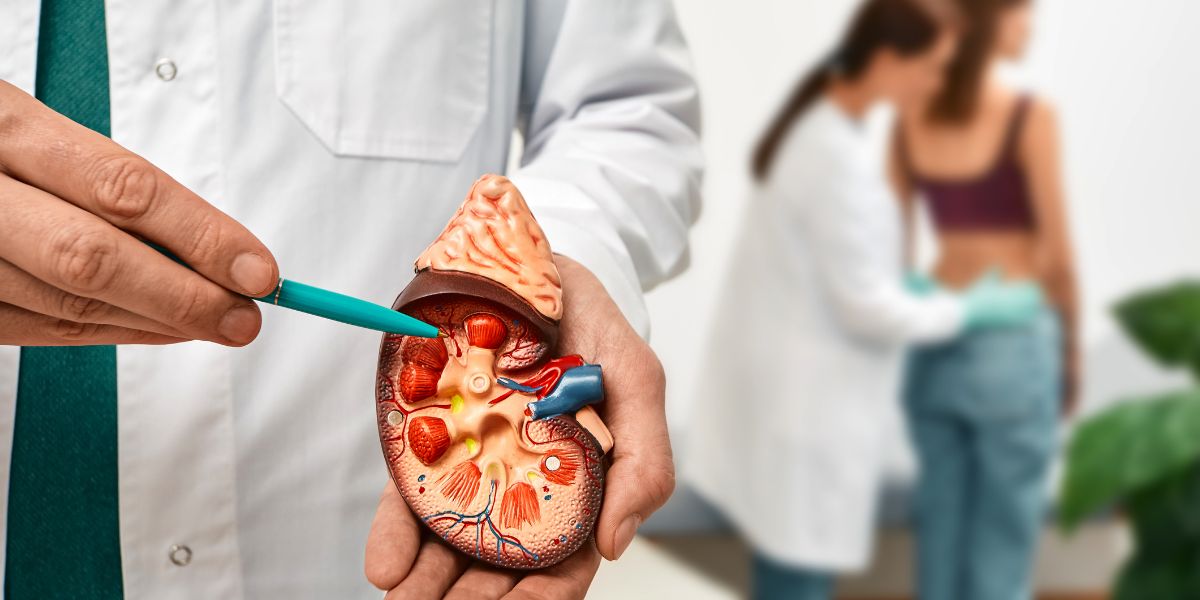If kidneys become damaged and struggle to filter blood well enough, a kidney transplant may be advised.
Kidney transplantation can allow you to get back to a normal life, however, there are risks to this kind of surgery and you will need to take immunosuppressant drugs (which need to weaken your immune system) to allow the body to accept the new kidney.
Why is a kidney transplant needed?
If the kidneys become damaged to the point whereby the kidneys are no longer able to function well enough on their own, a kidney transplant will be considered. This stage of kidney disease is said to be end stage renal disease (ESRD).
Renal damage in diabetes will result from either high blood sugar levels or high blood pressure over a period of time, or a combination of both.
If kidney transplantation is not suitable or not available, you will need to have kidney dialysis
Availability of kidney transplants
Currently the NHS reports that there are more people who require a kidney transplant than there are available donors.
People can comfortably live on one fully working kidney and as a result, kidneys can be removed from live donors who choose to donate a kidney.
Donated kidneys from live donors have a slightly better chance of success than those taken soon after the donor has deceased.
A kidney from a healthy family member usually presents the best chance of transplantation success as the body is less likely to reject the new kidney.
Kidney transplant procedure
The body can function well on just one kidney and so kidney transplants involves attaching one new kidney.
The procedure typically takes 3 to 4 hours and you will be put under general anaesthetic.
Generally the damaged kidneys will be left where they are as this reduces risk of complications such as infection. However, if a kidney is infected, it may be removed.
The new kidney will be inserted lower down in the abdomen, closer to the bladder than your existing kidneys. An incision is made and the kidneys are placed inside your abdomen and blood vessels of the new kidney will be connected to the body’s blood supply and the new kidney’s ureter (the tube that carries urine to the bladder) will be attached to the bladder
Recovery from a kidney transplant
Immediately following the procedure, after the anaesthetic subsides, you may experience pain at the site of the surgery, for which painkillers can be prescribed. It is common for people to be able to leave hospital after having the surgery.
You will need to take immunosuppressant drugs to prevent your body from recognising the new kidney as foreign and trying to reject it. You will need to attend regular transplant centre appointments to check how well the new kidney is responding.
The NHS notes that in about 30% of cases, the kidneys can take up to six weeks to start working properly. In this case, you will need to undergo kidney dialysis until the new kidney starts working well.
When recovery goes well, people are able to return to work within a few months.
Success rates of kidney transplants
Success rates for kidney transplants have improved in recent decades as more effective immunosuppressant techniques have been found.
Success rates are not so easy to quantify as success will depend on a number of factors including the quality of the kidney match (how close the donors DNA is to your own) as well as your overall health. Kidney transplant recipients are strongly advised not to smoke and to maintain a healthy lifestyle to prevent complications developing.
Complications of kidney transplantation
Kidney transplantation surgery carries which include:
- Urinary tract infections (UTIs)
- Influenza (flu)
- Blood clots
- Ureteral obstruction (where the ureter becomes blocked)
- Urinary leakage
- Immunosuppressant side effects
- High blood pressure
- Cancer
- Diabetes
- Kidney rejection
Kidney rejection
Kidney rejection happens if the body recognises the new kidney as a foreign object and the immune system begins to attack it. Kidney rejection occurs in about 20% of transplant. Rejection is most likely to occur within the first year of receiving the transplant.
The transplant will carry out regular checks to test your blood for any signs of rejection. If the body is trying to reject the new kidney, more powerful immunosuppressant drugs will be given to hold back the body’s immune response.
Post kidney transplant diabetes
Diabetes can be a consequence of kidney transplantation, which may be brought on by weight gain or a side effect of immunosuppressants.
The National Kidney Federation notes that higher than normal blood sugar levels may occur in up to 1 in 3 kidney transplant recipients.
- Read about the symptoms of diabetes









